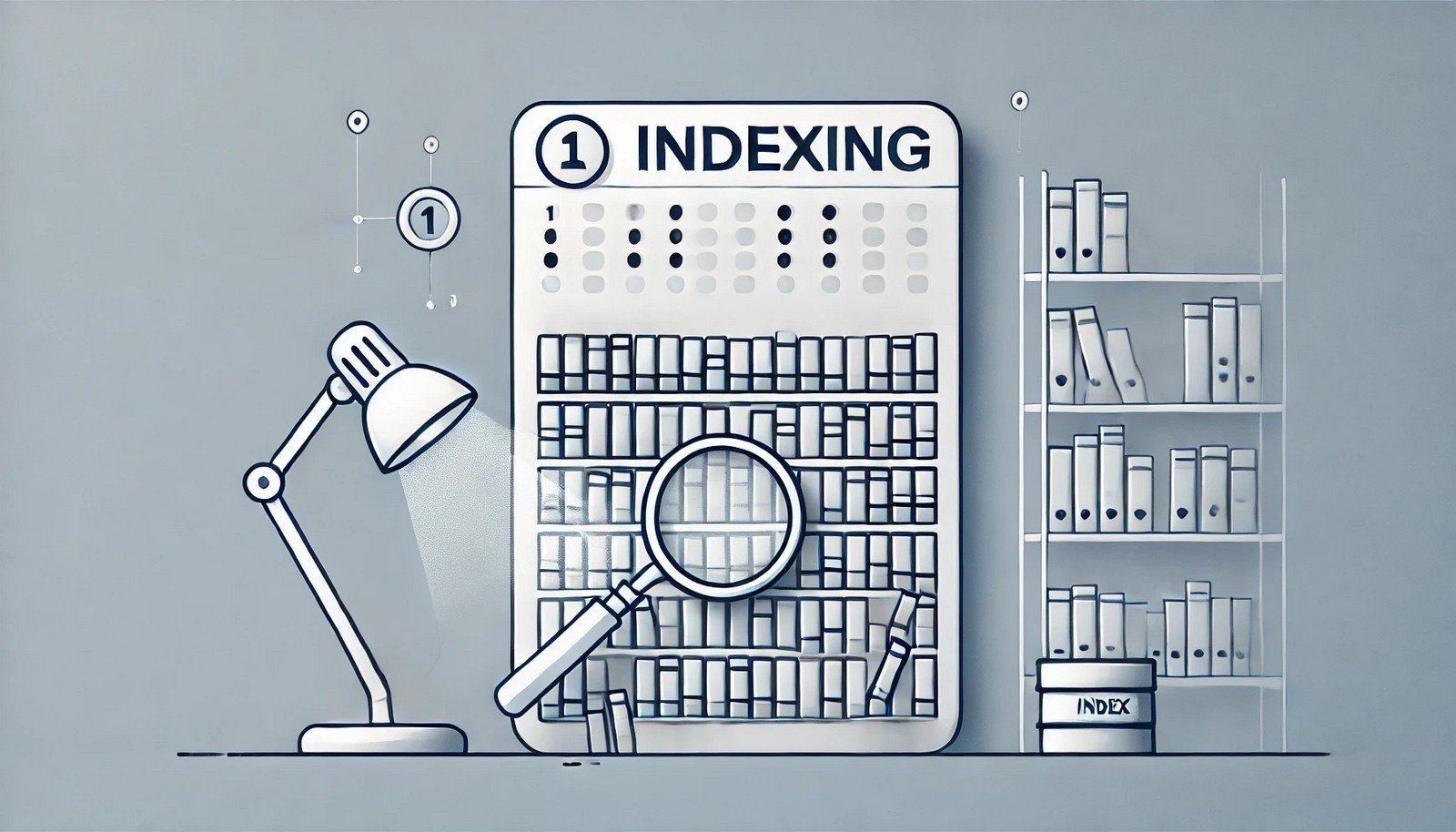Indexing Algorithm
 (Representational Image | Source: Dall-E)
(Representational Image | Source: Dall-E)
Quick Navigation:
- Indexing Algorithm Definition
- Indexing Algorithm Explained Easy
- Indexing Algorithm Origin
- Indexing Algorithm Etymology
- Indexing Algorithm Usage Trends
- Indexing Algorithm Usage
- Indexing Algorithm Examples in Context
- Indexing Algorithm FAQ
- Indexing Algorithm Related Words
Indexing Algorithm Definition
An indexing algorithm is a computational process used to create, manage, and optimize indexes for data retrieval in databases or search engines. These algorithms improve the speed and efficiency of data searches by maintaining structured records that point to the location of data items. Common indexing algorithms include B-trees, hash indexes, and bitmap indexes, each designed to cater to specific data types and query requirements.
Indexing Algorithm Explained Easy
Imagine you have a huge library with thousands of books. Instead of checking every book to find the one you want, you use the index card catalog to locate it quickly. An indexing algorithm is like the card catalog for computers—it helps find information super fast without checking every piece of data.
Indexing Algorithm Origin
The concept of indexing algorithms originates from early database management systems developed in the 1960s. These systems required efficient ways to access large amounts of data stored on physical media, leading to the development of various indexing techniques.
Indexing Algorithm Etymology
The word “index” comes from the Latin word index, meaning a pointer or sign. The term algorithm derives from the name of the Persian mathematician Al-Khwarizmi, whose works introduced systematic problem-solving methods.
Indexing Algorithm Usage Trends
Indexing algorithms have gained prominence with the rise of big data, search engines, and real-time analytics. Modern applications include text indexing for search engines, database indexing for business intelligence, and multimedia indexing for content management systems.
Indexing Algorithm Usage
- Formal/Technical Tagging:
- Database Management
- Information Retrieval
- Big Data Analytics - Typical Collocations:
- "indexing algorithm performance"
- "text indexing algorithm"
- "hash-based indexing"
- "indexing for fast retrieval"
Indexing Algorithm Examples in Context
- A search engine uses an indexing algorithm to quickly retrieve relevant web pages based on user queries.
- In relational databases, indexing algorithms speed up query execution by reducing the number of rows scanned.
- Multimedia indexing algorithms help organize and retrieve video and image data efficiently.
Indexing Algorithm FAQ
- What is an indexing algorithm?
An indexing algorithm helps organize data for quick retrieval by maintaining structured records. - Why are indexing algorithms important in databases?
They optimize data access, improving query performance and reducing response time. - What are some common types of indexing algorithms?
B-trees, hash indexes, and bitmap indexes are popular types. - How does an indexing algorithm work in a search engine?
It organizes and maintains an index of web pages for faster query response. - What is the difference between hashing and B-tree indexing?
Hashing provides constant-time data retrieval, while B-trees maintain sorted order for range queries. - Can indexing algorithms handle big data?
Yes, modern indexing algorithms are designed to manage large-scale data efficiently. - What are inverted indexes?
Inverted indexes map content to locations, often used in search engines for text retrieval. - What challenges do indexing algorithms face?
Managing dynamic data updates and maintaining efficiency are key challenges. - How is indexing used in multimedia databases?
Indexing algorithms help organize and retrieve images, audio, and video content. - Is indexing relevant in real-time systems?
Yes, real-time indexing algorithms enable fast access to streaming data.
Indexing Algorithm Related Words
- Categories/Topics:
- Data Structures
- Information Retrieval
- Database Systems
Did you know?
Indexing algorithms are fundamental to search engines like Google, where they help retrieve billions of web pages in milliseconds. Without these algorithms, finding specific content on the web would be almost impossible.
PicDictionary.com is an online dictionary in pictures. If you have questions or suggestions, please reach out to us on WhatsApp or Twitter.Authors | Arjun Vishnu | @ArjunAndVishnu

I am Vishnu. I like AI, Linux, Single Board Computers, and Cloud Computing. I create the web & video content, and I also write for popular websites.
My younger brother, Arjun handles image & video editing. Together, we run a YouTube Channel that's focused on reviewing gadgets and explaining technology.



Comments powered by CComment